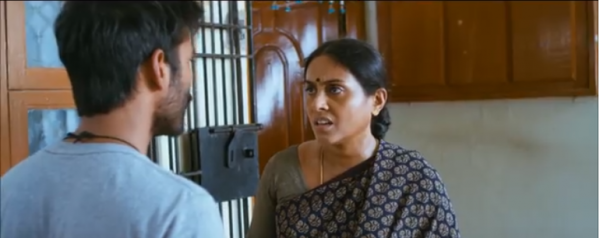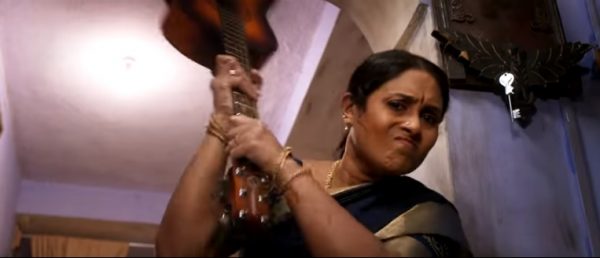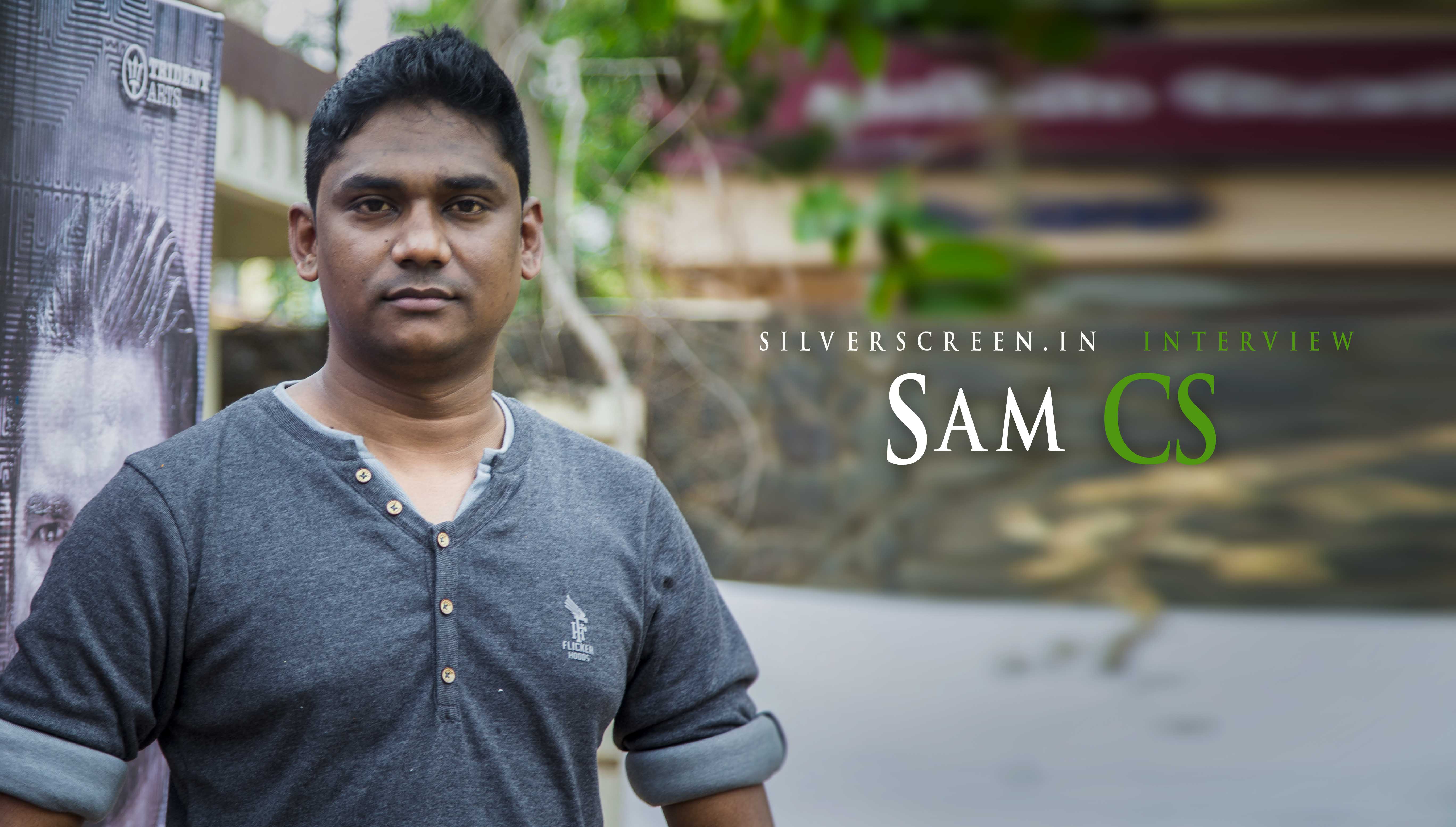Ms. En Scene – where Ranjani Krishnakumar concedes that cinema is life. Opinions expressed are those of the contributor, and not those of the company or its employees.
Editor’s Note: Saranya Ponvannan, who made her debut opposite Kamal Haasan in Nayagan (1987), played mother on screen for the first time in 2003 – when she was all but 33 years of age.
My love for Saranya Ponvannan began in a very Tamil Padam sort of way. I truly took notice of her only when she waved her velakkamaaru (broom stick) and brought it down with inimitable vigour on the transgressing Dhanush in Velai Illa Pattadhaari (2014). In the film, she plays Dhanush’s tough-loving mother — the scene with the broomstick is hardly the only time she hits him.
Since then, I’ve been firmly on #TeamSaranya. Saranya, today, is what is politely called in Tamil cinema as a ‘character artiste’. This most often means that she plays less important roles — ones that remain in the shadows when compared to those of the ‘hero’, ‘heroine’ and the ‘villain’. Yet, whenever I watched a film of hers, even if she plays an inconsequential role, she stood out for me, like a beautiful ray of sunshine slicing through the shadows.
I want to wax eloquent about the heart-wrenching mother she plays in films like Raam (2005) and Thenmerku Paruvakaattru (2010), where she is central to the film. But my admiration for Saranya is not limited to these roles. I don’t love her because she is an extraordinary actress — which she undoubtedly is — but because in every film, she brings to life a mother who is truly relatable, with warts and all.
Mothers in the Tamil film universe have always been a strange lot — often elevated to an ideal that is impossible to achieve. From the Tamil thaai of Manohara (1954), the sacrificial goddesses of Mannan (1992) and Thoongaathey Thambi Thoongaathey (1983) to even the cool mom of M Kumaran, Son of Mahalakshmi (2004), mothers in films are often placards for how a mother should be. This isn’t untrue of today, either. Take Radhika’s role as a mother in Poojai (2014), for instance — upright, highly respected, spoken to from a distance.

Saranya though, breathes some reality into a mother’s role, without diluting respect or admiration, and hardly ever inducing fear in her children. And in whatever little space she is given, she makes herself indispensable.
Take the utterly forgettable film Oru Kal Oru Kannadi (2012), for instance. In the film, she’s mother of the hero — played by Udayanidhi — a misogynist stalker, who appears to take more from his father than his mother.
Yet, Saranya’s role is central to his being palatable as a lover. His blatant hatred of women — pretending to vomit at the sight of one he thinks ‘ugly’, awful language and soup song — is counter-balanced by his relationship with his mother, which is one of love, respect and mutual support. With most other ‘character artistes’, this character might be long forgotten. But Saranya makes it her own within the few minutes of shared screen space she gets. Her inherent goodness, heartiness, innocence and capability for humour in spite of her abusive marriage makes us empathise with her, without the teary sympathy that’s often left for mothers.
This shines through all her films. Think of Kodi (2016), for instance, where her life is wrought with conflict and sorrow. She plays the wife of a man who immolated himself for a cause. She is the mother of twins — one of whom she approves of and the other who she disapproves but has great motherly sympathy and loyalty for. She exhibits the grit of a single parent, with the endearing vulnerability and everyday humour of a mother who worries about her son. She tears down the posters of her son from the wall, just after which she feeds the same son special food.

The jury is still out on my favourite Saranya— ongoing is a heated debate between Saranya of Achamindri (2016) and Saranya of Magalir Mattum (2017). Co-incidentally, she is not a mother in either of these films. The caring school teacher slowly revealed as an evil, greedy and heartless capitalist in Achamindri was a role perfect for her. She plays it without the drama and physical transformation that often comes with such a change, yet she makes no effort to underplay or humanize that evil.
“Santhoshame soundaryam, soundaryame santhosham,” she declares with the brought-on bubbliness of a TV anchor, as she’s introduced in Magalir Mattum. In no time, we get past the studio and see her life as a childless, care-taking, unappreciated housewife of a drunk. Her stoic resignation to her situation, her dark humour and her nonchalant decision-making say more about the writing of her character than her. But Saranya’s ability to switch between the joy of anticipation about meeting her friends and resentment of her present life is inimitable.
Take that scene where she’s packing to see her friends in Agra. She is enjoying the happy nostalgia of her girlhood, just as her husband comes home. She tells him with a poker-face that she’ll be travelling and sets him up to survive in her absence. When she’s giving him instructions about his mother’s medication, her friends call. She immediately lights up and smiles widely. She even playfully asks, “sothappida maattingale?” The very moment she is done with the call, her poker face returns, as if naturally.
She does this with such subtlety and understanding of her character, without the backing of any pomp and ‘mass’, that it’s easy to miss if you weren’t actively looking. She shows us, without telling us, how much joy women are capable of, even in the tiring suffocation of their situations.
Recommended
It shouldn’t come as a surprise that she has only been offered roles of being the hero’s mother and hardly, if any, as the heroine’s mother. The heroine herself is an afterthought, who is worrying about her mother, really? I hear that Saranya’s next big release is no different.
I’m excitedly waiting for next week’s Kolamavu Kokila, where Saranya is said to play, once again, the hero’s mother.
Except, this time the hero happens to be female.
*****
Unmistakable. Meticulous. Predominantly an essayist. Evolved from a marketer. Ranjani Krishnakumar eats Tamil films all day and fruits for breakfast. Roosts with pair in Chennai apartment. Usually found chasing Vitamin-D. Believes “Dei” or “Pch” is the answer to all questions.
Twitter: @_tharkuri



